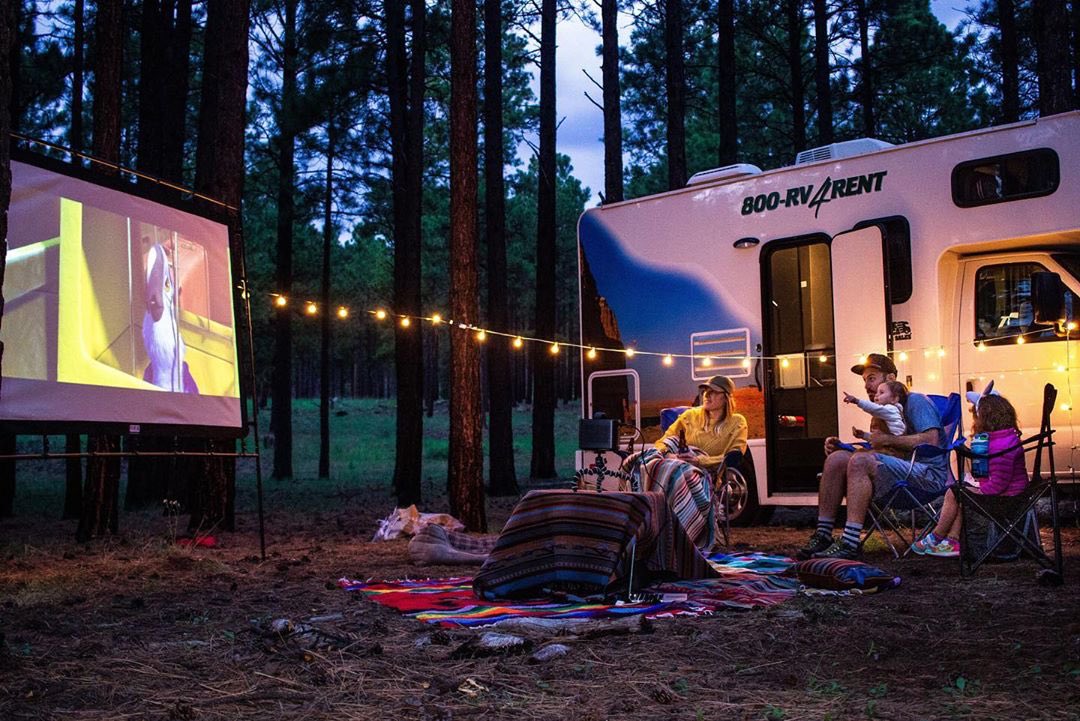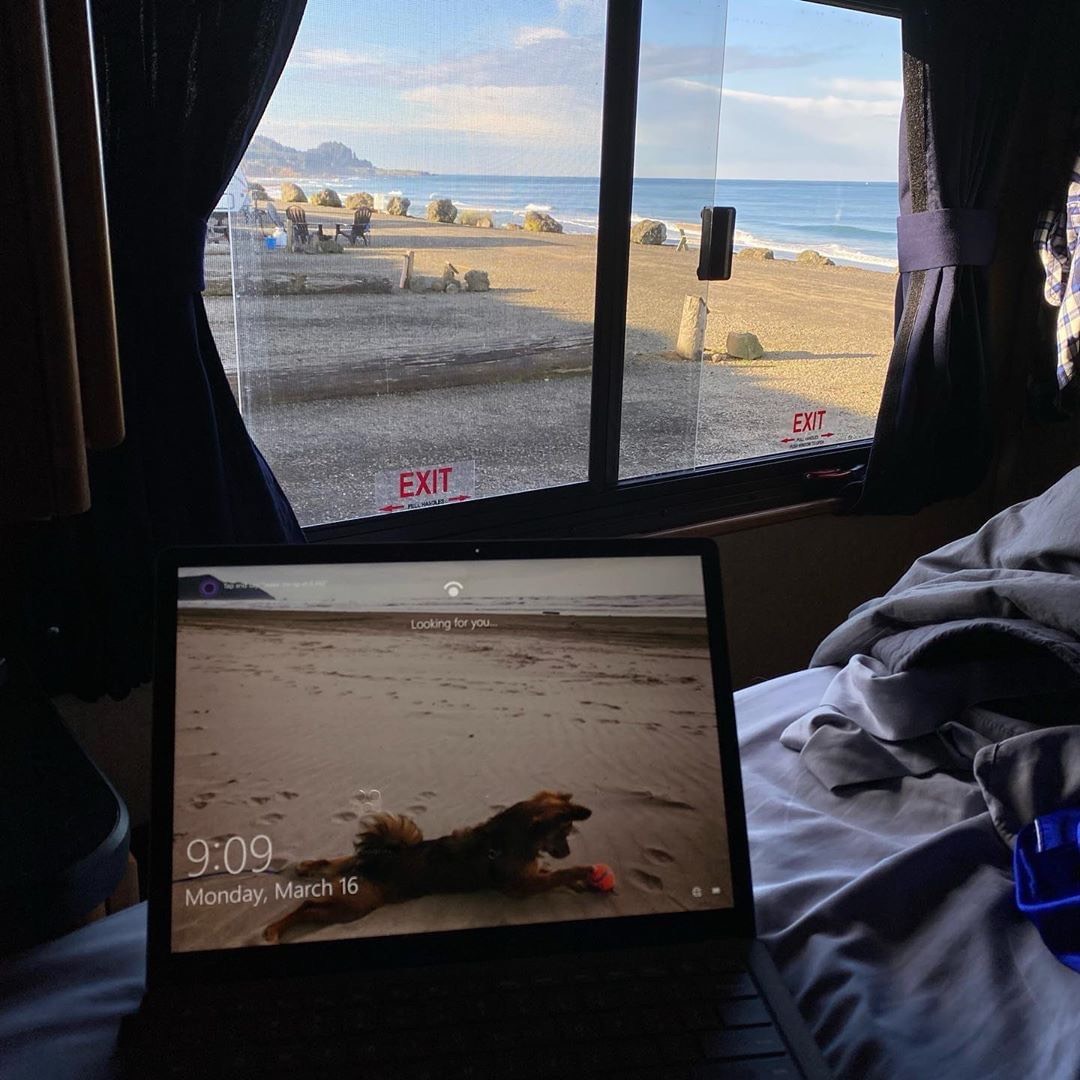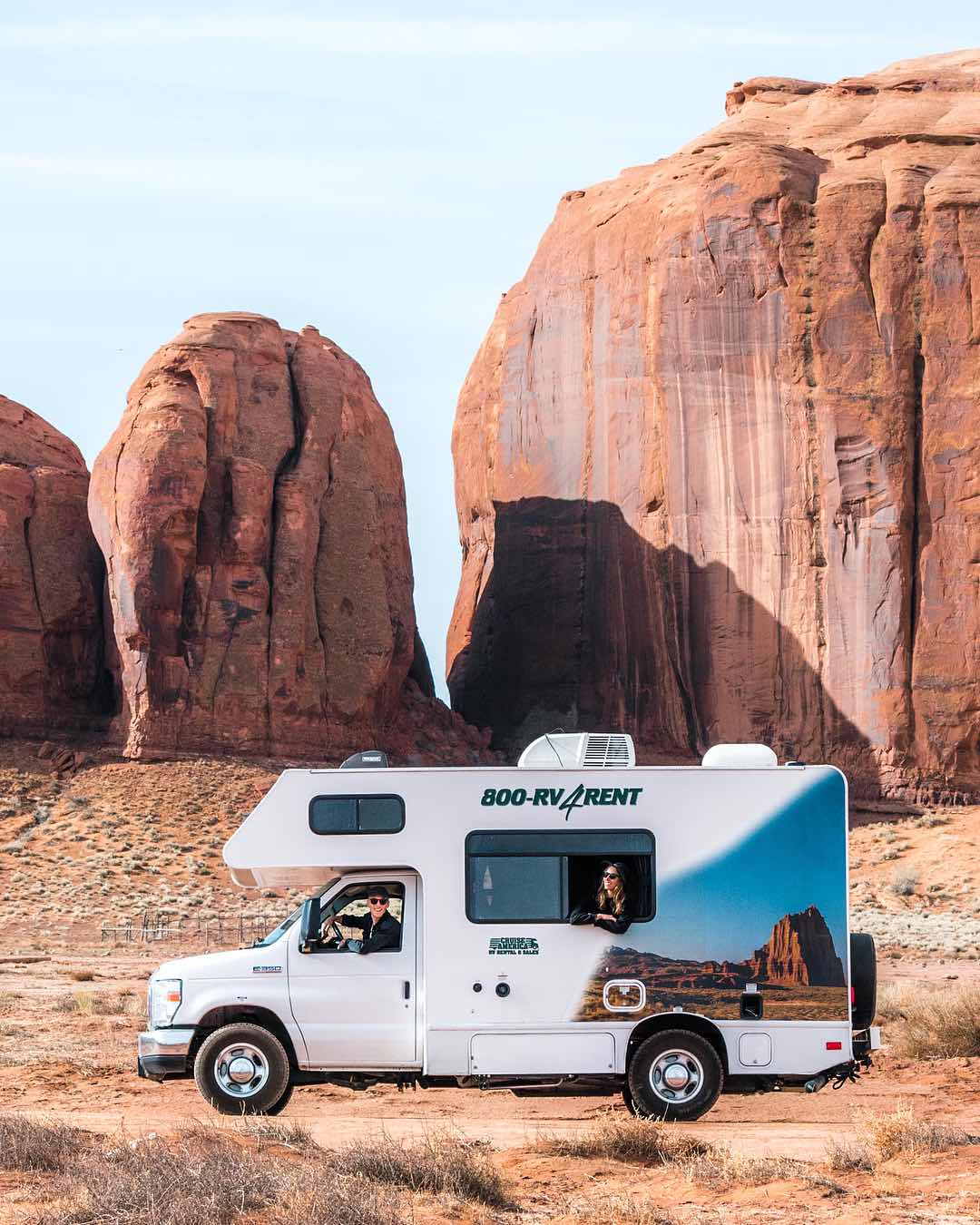Hitting the open road. Reconnecting with nature. Watching Netflix?
These days, our interconnected world has more RV lovers than ever before. And they want fully connected Wi-Fi for RV traveling!
We can’t blame them. Staying connected with family and watching your favorite shows after a long day exploring nature on your RV camping trip sounds amazing.
In this article, we’ll go over all your options for how to get Wi-Fi for RVs, plus everything you should consider before making a purchase. So if you want to stay connected and see the country in an RV, keep reading!
Wi-Fi Terms to Know
There are plenty of terms surrounding Wi-Fi for RVs that you may not be familiar with.
-
Speed test: A measurement of the internet connection's download and upload speeds, usually expressed in megabits per second (Mbps).
-
Hotspot: A portable device or feature on a smartphone that creates a localized wireless network, allowing other devices to connect to the internet through it.
-
Wi-Fi booster: A device that amplifies and extends the range of an existing Wi-Fi network, improving signal strength and coverage.
-
Wi-Fi extender: Similar to a Wi-Fi booster for RVs, it's a device that increases the coverage area of an existing Wi-Fi network by rebroadcasting the signal.
-
Router: A hardware device that connects multiple devices to a network and directs data traffic between them, often providing Wi-Fi connectivity and managing IP addresses.
-
Throttling: The intentional slowing down of internet connection speeds by an internet service provider (ISP) after a certain amount of data has been used or during peak network usage times.
-
Unlimited data: A mobile or internet plan that offers unrestricted data usage, typically without data caps or overage charges.
-
Cellular data: Internet access is provided through a cellular network, often used on mobile devices like smartphones and tablets.
What to Consider Before Getting Wi-Fi for Your RV
 Photo Credit: Instagram User @f_o_n_z
Photo Credit: Instagram User @f_o_n_z
Before you get RV Wi-Fi, there are a few questions you should ask yourself to get an idea of what your specific needs are. You don’t want to overpay for a service you don’t need or be stuck with Wi-Fi that isn’t powerful enough, so keep these questions in mind.
-
Do you plan on streaming video? Streaming on Netflix requires 3GB per hour of data.
-
What are you looking to spend on RV Wi-Fi? Local public Wi-Fi is usually free or cheap. Cellular data can be costly if you don't have an unlimited plan. Satellite internet is also expensive.
-
Will you need to work from the road? Zoom calls for work will take anywhere from 810MB to 2.4 GB of data per hour for group meetings.
-
How many internet users will there be in your RV? If you have multiple internet users, the GB usage per hour rate can add up fast.
-
Where do you plan on taking your RV trip? Are you going somewhere remote where cell service won’t work? Do you plan on staying in an RV park with local Wi-Fi?
-
What is your current cellular data plan? Will you have to buy 5G service or upgrade your plan to use cellular data for RV Wi-Fi?
-
Are you renting your RV, or do you own it? Most satellite internet services aren’t allowed on RV rentals because they require hardware installation.
Wi-Fi for RVs: What Are Your Options?
 Photo Credit: Instagram User @takethescenicroutewithus
Photo Credit: Instagram User @takethescenicroutewithus
So, how do you get Wi-Fi in an RV?
There are three main ways to get RV Wi-Fi while on the road:
-
Wireless Service Providers (Cellular data)
-
Satellite Connection
-
Local Wi-Fi Networks
Cellular Data Devices
Using your cell phone as a wireless 5G hotspot is the best RV Wi-Fi option for most people.
With an unlimited data plan, personal hotspots can deliver enough connectivity to watch Netflix or work online in most locations. You can also buy a personal hotspot device (like one from Verizon or Skyroam) and connect to 5G networks.
Despite cell phone providers claiming they cover 98% of Americans, the reality is that even the best cellular 5G network covers only 70% of the country’s total landmass. That means millions of miles of terrain where your cell phone won’t be able to provide any connection.
You can try and use cell phone signal boosters or external Mifi Antennas to increase the signal range. However, using cellular data isn’t always the best idea if you’re working online or planning to go somewhere remote.
Satellite Internet Services
If you need to work from the road or can’t live without your low-latency online video games, satellite internet services might be just what you’re looking for.
Satellite internet is the most expensive method to get online while using an RV. Installation of the satellite alone can cost thousands, but the services are powerful and convenient. Of course, if you’re renting an RV, satellite internet usually isn’t an option due to installation issues.
There are new ‘Sat-Fi’ systems that sell for around $1,000 and don’t require installation. They don’t provide the same quality of internet connection, though, and you’ll still have to pay for data.
Local Public/Private Wi-Fi
In the past, local public/private Wi-Fi was rarely useful for RV campers. Most RV parks didn’t have Wi-Fi, and when they did, it was usually slow. These days, the local public/private RV Wi-Fi landscape is changing.
Now, RV parks are including local public Wi-Fi far more often. You can also use a Wi-Fi extender to take advantage of as much free internet as possible while on the road.
The quality of local public Wi-Fi is leading many RV lovers to skip the roaming Wi-Fi altogether. After all, having a chance to disconnect for a while can be a blessing.
Top Wi-Fi Boosters for RVs
Here are some of the best Wi-Fi boosters for RVs on the market today.
Alfa Wi-Fi Camp Pro 2 Long Range Wi-Fi Repeater RV Kit
-
Upgraded Camp Pro with better features.
-
Can connect several devices.
-
Suitable for use in yachts and marine environments besides RVs.
Winegard ConnecT 2.0
Securifi Almond Touchscreen Wireless Router/Range Extender
-
Ideal for areas with limited coverage.
-
Multipurpose and intuitive design, suitable for van life as well as RVs.
Bearifi BearExtender Outdoor RV & Marine:
 Photo Credit: Instagram User @northabroad
Photo Credit: Instagram User @northabroad
Ready for an RV Getaway?
RV Wi-Fi can make a trip more enjoyable, but sometimes it’s better to just escape it all and disconnect from the world.
Whether it’s an RV camping trip to a national park or a cross-country road trip, there’s so much to enjoy offline.
And with Cruise America RV rentals, you can do it all without breaking the bank. Rentals start at just $50/Night, and there are great weekly rates available.
For all your RV rental needs, Cruise America is here to help with a location near you.